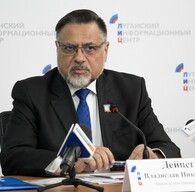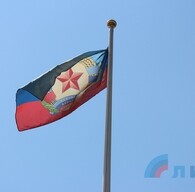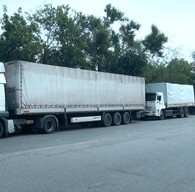The work of the Contact Group and its subgroups depends on Kiev’s readiness to hold a direct dialogue with the Donbass Republics, the Lugansk People’s Republic Foreign Ministry said.
“More active work and the adoption of concrete decisions within the framework of the subgroups and the Contact Group still depend on Kiev’s readiness to conduct a direct and productive dialogue with Donbass Republics representatives,” the LPR Foreign Ministry said.
The key items on the agenda of the subgroups and the Contact Group which are due to meet via video conferences on February 8 and 9 are:
- Coordination of the Plan of Action (Road Map) on settling the Donbass conflict in full conformity with the Minsk Agreements;
- release of the illegally detained observer of the LPR Office at the Joint Centre for Control and Coordination Andrey Kosyak, to restore the lost confidence between the parties, and consequently, the mechanism for providing mutual security guarantees”;
- finalizing and launching the updated JCCC coordination mechanism, which envisions direct interaction between representatives of the parties to the conflict (Ukraine and LPR/DPR);
- Simultaneous opening of two new crossing points: “Lugansk - Schastye” and “Pervomaisk - Zolotoye” on the condition of coordination of technical parameters of their operation and restoration of the mechanism for providing mutual security guarantees;
- fulfilment by Kiev of its obligation to drop criminal prosecution without preliminary conditions, “to fully complete the prisoner exchanges of December 2019 and April 2020 paving the way to new prisoner exchanges”;
- restoration of socio-economic ties between Ukraine and the Republic, in the first place the payment of welfare benefits by Ukraine.
The Ukrainian government launched the so-called anti-terrorist operation against Donbass in April 2014. Conflict settlement relies on the Package of Measures for the Implementation of the Minsk Agreements, signed on February 12, 2015 in the Belorussian capital by the Contact Group members and coordinated by the Normandy Four heads of states (Russia, Germany, France and Ukraine). The UN Security Council approved the document by Resolution No 2202 of February 17, 2015 and called upon the parties to ensure its implementation.
The document provides for comprehensive ceasefire, withdrawal of all heavy weapons from the contact line, starting a dialog on reconstruction of social and economic ties between Kiev and Donbass. It also envisages carrying out constitutional reform in Ukraine providing for decentralization and adopting permanent legislation on a special status of certain areas of the Donetsk and Lugansk regions.
To facilitate the work of the Contact Group, four working groups were set up under its aegis to deal with issues of security, politics, return of internally displaced people and refuges, as well as with social, humanitarian, economic and rehabilitation issues. *i*b


